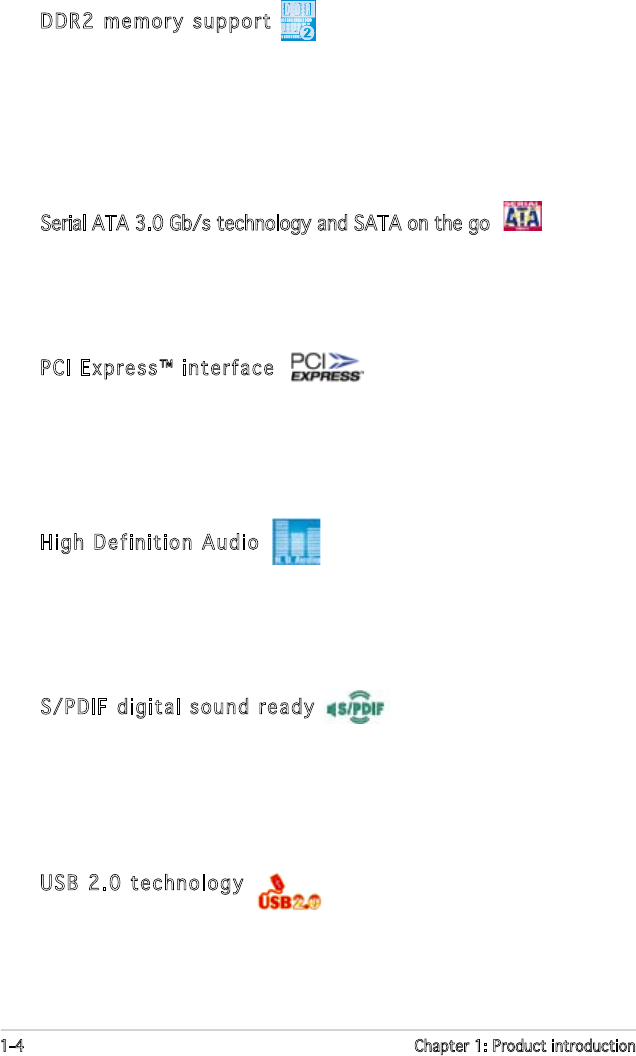
1-4 Chapter 1: Product introduction
DDR2 memory support
The motherboard supports DDR2 memory which features data transfer rates
of 667 MHz or 533 MHz to meet the higher bandwidth requirements of the
latest 3D graphics, multimedia, and Internet applications. The dual-channel
DDR2 architecture doubles the bandwidth of your system memory to boost
system performance, eliminating bottlenecks with peak bandwidths of up to
10.7 GB/s. See pages 1-17 to 1-20 for details.
Serial ATA 3.0 Gb/s technology and SATA on the go
This motherboard supports the next-generation hard drives based on
the Serial ATA (SATA) 3Gb/s storage specication, delivering enhanced
scalability and doubling the bus bandwidth for high-speed data retrieval and
saves. See pages 1-30, and 2-19 for details.
PCI Express™ interface
The motherboard fully supports PCI Express, the latest I/O interconnect
technology that speeds up the PCI bus. PCI Express features point-to-point
serial interconnections between devices and allows higher clockspeeds by
carrying data in packets. This high speed interface is software compatible
with existing PCI specications. See pages 1-23 and 1-24 for details.
High Definition Audio
The onboard 6-channel High Denition audio CODEC enables high-quality
ADI AD1986A audio CODEC, which automatically detects and identies
what types of peripherals are plugged into the audio I/O jacks and noties
users of inappropriate connection. See page 1-27 for details.
S/PDIF digital sound ready
The motherboard supports the S/PDIF technology through the S/PDIF
interfaces on the rear panel and at midboard. The S/PDIF technology
turns your computer into a high-end entertainment system with digital
connectivity to powerful audio and speaker systems. See page 1-28 for
details.
USB 2.0 technology
The motherboard implements the Universal Serial Bus (USB) 2.0
specication, dramatically increasing the connection speed from the
12 Mbps bandwidth on USB 1.1 to a fast 480 Mbps on USB 2.0. USB 2.0 is
backward compatible with USB 1.1. See pages 1-24 and 1-31 for details.


















